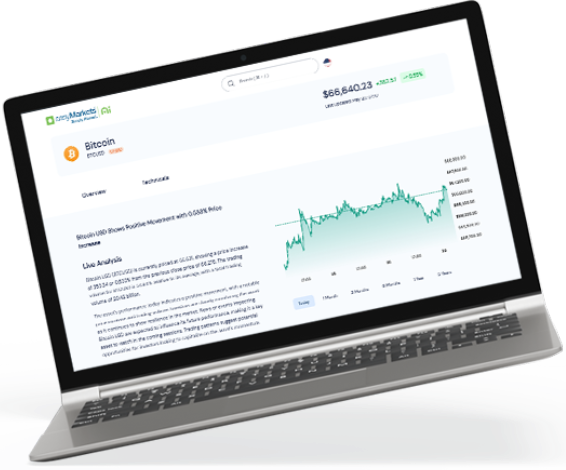What is Trading Psychology?

When you picture someone with discipline, emotional control, and a solid strategy, who comes to mind first? A soldier? Sure. A chess player? Absolutely.
In the world of trading, these same qualities are just as crucial. Markets can move fast, and when prices fluctuate wildly, staying calm and focused can mean the difference between success and costly mistakes. This is where trading psychology comes in.
Understanding trading psychology can help new and experienced traders alike make better decisions, manage risk effectively, and stay consistent over time. Let’s explore the key emotional and psychological factors that affect trading, and how to manage them.
Trading Psychology
Emotions like fear, greed, and anger can cloud your judgment and cause you to abandon your trading plan. You might overtrade, take on too much risk, or close trades too early (or too late). These emotional reactions can have a real impact on your performance.
In fact, a well-known study on traders’ emotional responses found that those who reacted more strongly, positively or negatively, to wins and losses actually performed worse overall.
“Subjects whose emotional reactions to monetary gains and losses were more intense... exhibited significantly worse trading performance.”
Fear and Greed in Financial Markets: A Clinical Study of Day-Tradersby Lo, Repin & Steenbarger
More recent research supports these findings. A 2023 study titled Emotional Engagement and Trading Performance found that traders who showed emotional reactions after making trades, rather than before, tended to perform worse. In contrast, those who exhibited anticipatory emotional responses before executing trades, such as elevated heart rates, were more likely to earn higher profits. The research suggests that while emotional reactivity can hurt performance, a certain level of emotionally driven foresight may actually enhance trading outcomes.
Additionally, a 2021 study published in Finance Research Letters analyzed over two million forum posts and found that emotional expressions significantly predicted Bitcoin trading volume and return volatility, indicating that emotions play a crucial role in market dynamics.
Psychological Barriers to Effective Trading
The three most common emotional challenges traders face are:
Fear
Fear often leads traders to exit positions too early or avoid entering trades all together. For example, your analysis suggests an asset will rise by the end of the day, but a temporary price dip makes you panic and you close the trade. Later, the price rebounds just as you predicted, but you have already locked in a smaller gain or missed out on the profit entirely. This is a classic example of fear overriding logic which leads to second-guessing and lost opportunity.
Greed
Greed typically comes from overconfidence. You are in a winning trade and decide to hold on longer than planned, hoping for even more profit. But the market reverses, and you give back your gains. Greed pushes you to ignore your exit plan and take unnecessary risks.
Anger/Revenge Trading
After a string of losses, it’s tempting to chase the market with unplanned, emotional trades to “win it all back.” This is called revenge trading, and it rarely ends well. Instead, take a step back, review your strategy, and focus on your overall performance, not individual trades.
Planning beats panic: the power of a trading strategy
One of the best ways to manage your trading psychology is to create a clear trading plan and stick to it. A strong strategy should include:
- • Risk/reward ratios
- • Entry and exit levels
- • Maximum exposure per trade
- • Criteria based on technical or fundamental analysis
How to create a trading strategy
Keep a trading journal
Track your trades to identify patterns, successes, and mistakes.
Do your research
Stay informed about market conditions, trends, and events.
Be adaptable
Update your strategy when needed but avoid impulsive changes.
Set upper and lower limits
Use tools like Guaranteed Stop Loss with No Slippage* to manage risk and lock in gains.
Managing stress
Stress can lead to impulsive decisions and poor risk management. To trade effectively, you need a calm, focused mindset.
Here’s how to reduce stress while trading:
Take breaks
Step away from the screen when emotions run high.
Limit risk
Keep trade sizes between 1-3% of your total account value.
Avoid margin pressure
Ensure your account has enough balance to prevent margin calls.
Use reliable trading conditions
- • Tight Fixed spreads: easyMarkets offers tight fixed spreads on our proprietary web and app platform, as well as through MetaTrader 4 (MT4) and TradingView, ensuring that spreads don’t widen during volatility.
- • Guaranteed Stop Loss with No Slippage* This ensures that your trades are executed at your exact desired stop loss rate.
These conditions give you more control and reduce surprise costs, helping you focus on your strategy, not your stress.
Controlling anger & avoiding emotional trading
If you’ve just lost a few trades and feel frustrated, it’s easy to fall into a revenge trading mindset.
Before opening another trade, ask yourself:
- • Am I trading based on my plan or my emotions?
- • Have I tried to recover losses by making unplanned trades?
- • Am I risking more than I should?
If the answer to any of these is ‘yes’, pause. Take a break. Review your journal. Reconnect with your strategy before getting back in the market.
Even after a winning streak, overconfidence can lead to risky decisions. The key is to stay grounded, no matter the outcome.
Tools to support your trading psychology
Trading success is about more than just technical skill. Managing your emotions is just as important. That is why easyMarkets offers trading conditions and tools designed to support your mindset and protect your funds.
easyTrade
A simplified, option-style trading ticket with no spreads and no margin. You choose your risk level in advance without putting any limit on your potential upside.
Tight Fixed Spreads
Know your costs before you trade. When trading through easyMarkets proprietary web and app, TradingView and MT4 spreads remain fixed even during major news or volatility.
Guaranteed Stop Loss with No Slippage*
This exclusive trading condition allows you to confidently set your trade limits and ensures that your trade closes at your exact desired stop-loss, protecting your account against runaway losses.
Keep learning
Now that you understand the basics of trading psychology, it’s time to keep growing. Explore easyMarkets Academy, a free learning hub with dozens of courses, videos, and tests to help you improve your strategy, strengthen your discipline, and build lasting trading habits.
easyMarkets Academy*Guaranteed Stop Loss with No Slippage is only available on easyMarkets web & app trading platform. Activate with wider spread for total risk control.

When you picture someone with discipline, emotional control, and a solid strategy, who comes to mind first? A soldier? Sure. A chess player? Absolutely.
In the world of trading, these same qualities are just as crucial. Markets can move fast, and when prices fluctuate wildly, staying calm and focused can mean the difference between success and costly mistakes. This is where trading psychology comes in.
Understanding trading psychology can help new and experienced traders alike make better decisions, manage risk effectively, and stay consistent over time. Let’s explore the key emotional and psychological factors that affect trading, and how to manage them.














